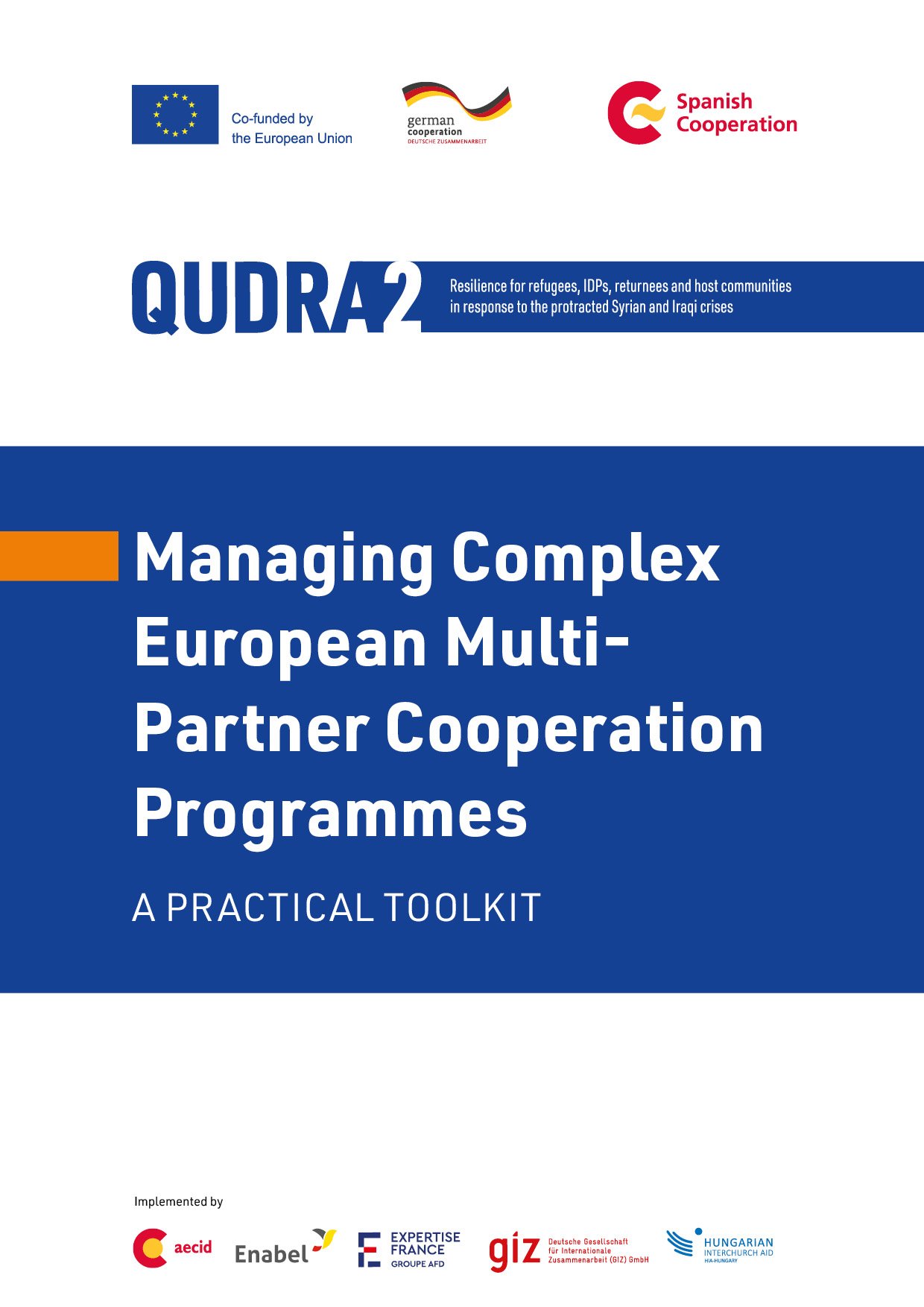Managing Complex European Multi-Partner Cooperation Programmes - A Practical Toolkit
Developed By:
Kompetus, Member of Beyond Group
In Partnership With:
Deutsche Gesellschaft für Internationale Zusammenarbeit (GIZ) GmbH
2023
Managing Complex European Multi-Partner Cooperation Programmes
A Practical Toolkit
International development cooperation programmes increasingly require close collaboration between diverse organisations. By pooling their expertise, resources, and networks, cooperation programmes can create added value for beneficiaries, partners, and donors, resulting in improved effectiveness, efficiency, and impact.
However, creating added value through cooperation programmes can pose management challenges for programme partners. The need for strategic alignment and operational coordination can create complexity, which increases further if the programme operates across different thematic areas and locations.
To help implementing agencies manage this complexity, this toolkit provides practical guidance on designing and implementing complex cooperation programmes. It was developed as part of the Qudra 2 programme, a multi- partner action aimed at strengthening the resilience of people and communities affected by the Syrian and Iraqi crises.
The Qudra 2 programme is financed by three European donors and implemented by five European implementing agencies across three thematic areas in Iraq, Jordan, Lebanon, and Türkiye.
The toolkit is based on Qudra 2’s experiences in cooperation management. In a joint reflection, the Qudra 2 partners identified 11 lessons learnt clustered across five success factors.
The toolkit follows the same structure and provides tools for each success factor to improve the management of cooperation programmes. The focus is on enhancing cooperation among programme partners, i.e. the organisations directly involved in managing the cooperation programme. The roles of other stakeholders, such as donors and local implementing partners, are also considered where necessary.
The toolkit is based on the Qudra 2 experience, but it is designed to be widely applicable. It provides suggestions on how and when to use these tools. However, users should use discretion and adapt the tools to their circumstances.
The success factors are often interdependent; for example, a clear strategy helps to steer relevant processes. The tools can, therefore, be used in conjunction with one another and users may go through several iterations of applying different tools as the programme’s approach to cooperation takes shape. Each tool’s introduction mentions other relevant tools and suggests the programme cycle stage in which the tool is most useful. There is no “best” or specific order to apply the tools, and not every tool will be helpful for every scenario.


